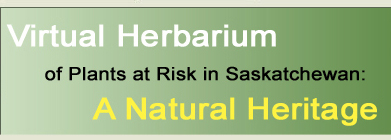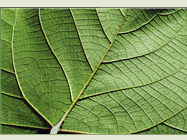
|

|

|

|

|

|

|
|
|
|
|
|
| Lilaea scilloides (Poir.) Hauman | Species Image Gallery (opens in a new window) |
||||||||||||
| TAXONOMY | |||||||||||||
| Family: | Juncaginaceae | ||||||||||||
| Genus: | Lilaea | ||||||||||||
| Species Synonyms: | Lilaea subulata Bonpl | ||||||||||||
| Common Names: | flowering quillwort awl-leaf lilaea |
||||||||||||
| DISTRIBUTION | |||||||||||||
| Canada: | southwestern British Columbia, southeastern Alberta – southeastern Saskatchewan | ||||||||||||
| Saskatchewan: | southern Saskatchewan; Debden – Trossachs | ||||||||||||
| Ecoregion: | Cypress Uplands, Mixed Grassland, Moist Mixed Grassland, Boreal Transition | ||||||||||||
| HABITAT | |||||||||||||
| Saskatchewan: | sloughs and mudflats | ||||||||||||
| RARITY STATUS | |||||||||||||
| Provincial
Status According to Harms (2003): |
Endangered |
||||||||||||
| Nature Conservancy Status: | N2 S1 |
||||||||||||
| Saskatchewan
Species at Risk Status: |
None |
||||||||||||
| COSEWIC Status: | None |
||||||||||||
| Flowering quillwort is endangered in Saskatchewan because there are few known locations of his species and the populations tend to be small and separated from one another. | |||||||||||||
| SPECIES DESCRIPTION | |||||||||||||
| Height: | to 30 cm | ||||||||||||
| Roots: | rhizomes slender, short, lacking terminal swellings Stems: absent | ||||||||||||
| Leaves: | erect, basal, 15 – 35 cm long, 1 – 3 mm wide, round in cross section, tissue with large air spaces; sheath with free ligule | ||||||||||||
| Inflorescence: | spike-like racemes or solitary flowers, both long stalked and sessile, usually with 2 or more sessile inflorescences, solitary flowers female only; stalks shorter than leaves; female flowers near base, bisexual flowers in the middle, male flowers near the top | ||||||||||||
| Flowers: | sessile, bisexual and unisexual; 5 types of flowers: 1. tepals 0 – 1, green, linear, stamens 0 – 1, anthers sessile, pistil 1, ovules 1; 2 and 3 (bisexual and male flowers). tepals present; 4 (female flowers). tepals present, style 0.5 – 2 mm; 5 (female flowers). tepals absent, style 0.2 – 3 mm | ||||||||||||
| Fruits: | nutlets 2 – 5 mm long, angular, beaked | ||||||||||||
| |||||||||||||